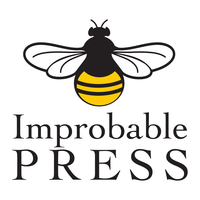By Atlin Merrick

A writer recently asked what I mean by 'I'm editing your book,' and it's a great question, so here's a bit on the nitty gritty of how the editing process goes.
How We Edit Your Book
You've sent your completed novel to your editor. Though they've never seen those words before I promise, they're excited!
Though the precise process depends on the editor, this is roughly how it goes:
- We read your manuscript, making note of big things like 'this story starts too early… begin the book at chapter three' or 'this scene was great, would love to see more!' or 'not sure what's happening in this scene, needs to be fleshed out.' We then send the comment-heavy manuscript back to you. (We don't let you know how it's going as we're reading; there's just not time to give you a chapter-by-chapter reaction so please be patient.)
More
A Short Story is a Seed: Plant as Many as You Can
How to Disagree With Your Editor
5 Ways for Shy People to Promote Their Book
- Once you get our edits, you can agree or disagree with the changes we've asked for. If you agree with most, you and the editor discuss a deadline for implementing them. Most editors are flexible, so don't get in a panic that you'll have to do a lot in a little time. Once you make the needed changes, you send the book back to us. (If you don't agree with big changes, we may have to end our collaboration, since we see the book differently and that's fine. Know that your book will never be changed against your will. You own it, it's yours. If we reach an impasse you absolutely can take your original manuscript elsewhere.)
- We read the book again and presuming the changes are great, we enter the copyedit phase, where we're likely to make more fine-grained edits. Maybe we tell you two characters sound a lot alike, can you tweak their dialogue? Or some paragraphs are overlong, can you break them up? Again, if you agree with our suggestions, you make the changes, if you don't, we discuss why. There's more flexibility here for you to disagree, but you also want to listen to why the editor wants those changes.
- After you've made the next set of edits, we read your book a third time and then pass it on to a proofreader. The book is fresh to their eyes so they find stuff we missed, maybe a character's name was changed and neither you or your editor realised the old name still lingers in a few spots.
- We're almost there! Once again the book comes back to you and you look at the proofreader's edits. Sometimes, depending on your topic, we may then send the book for a sensitivity read – if your protagonist is Deaf, for example, we may have a Deaf reader look at your book and make suggestions. These are also sent to you.
- Assuming all is well, we're done with the edits of your book! Behold its glory and rejoice!
Publishing a Book Takes Patience
Now comes the rest of the process toward publication: book layout, cover design, and your book joining the publishing queue – yes, queue, because there are always books ahead of yours waiting to be edited, proofread, laid out, cover designed, and published.
More
Writing Your First Novel: 5 Things You Need to Know
Why Write What You Know Also Means Write What You Don't
Super Secret Tips For Getting Your Short Story Published
The publisher has an idea when your book will debut, but that date can change. Like films, books get reshuffled in the queue for a dozen reasons, it rarely has anything to do with your book and everything to do with Life Happens™.
Publishing requires patience, there's no quick way to be published because this is a collaboration, and there are a lot of people working on getting your book ready. You can self-pub, of course, and then the only book in the queue is yours. That's perfectly valid. But if you're working with an independent press, book publishing takes time.
Have questions about any of this? We love them, so ask them!

Answering Ellie’s question:
Hi Ellie, contracts come into play when we accept your book or story. So if you’ve sent us a completed book, before we start editing, planning on the date of publication, any of that…we send you a contract. Every publisher should, otherwise how can you know what royalty percentage you’ll get? What your publisher will do for you and requests you do for them?
Thank you for asking and I’m more than happy to answer any other questions!
Atlin
Hi, I was wondering at what point a contract comes into play? In other words: when is the book placed with you? Or do you work without contracts at Improbable? Thanks!